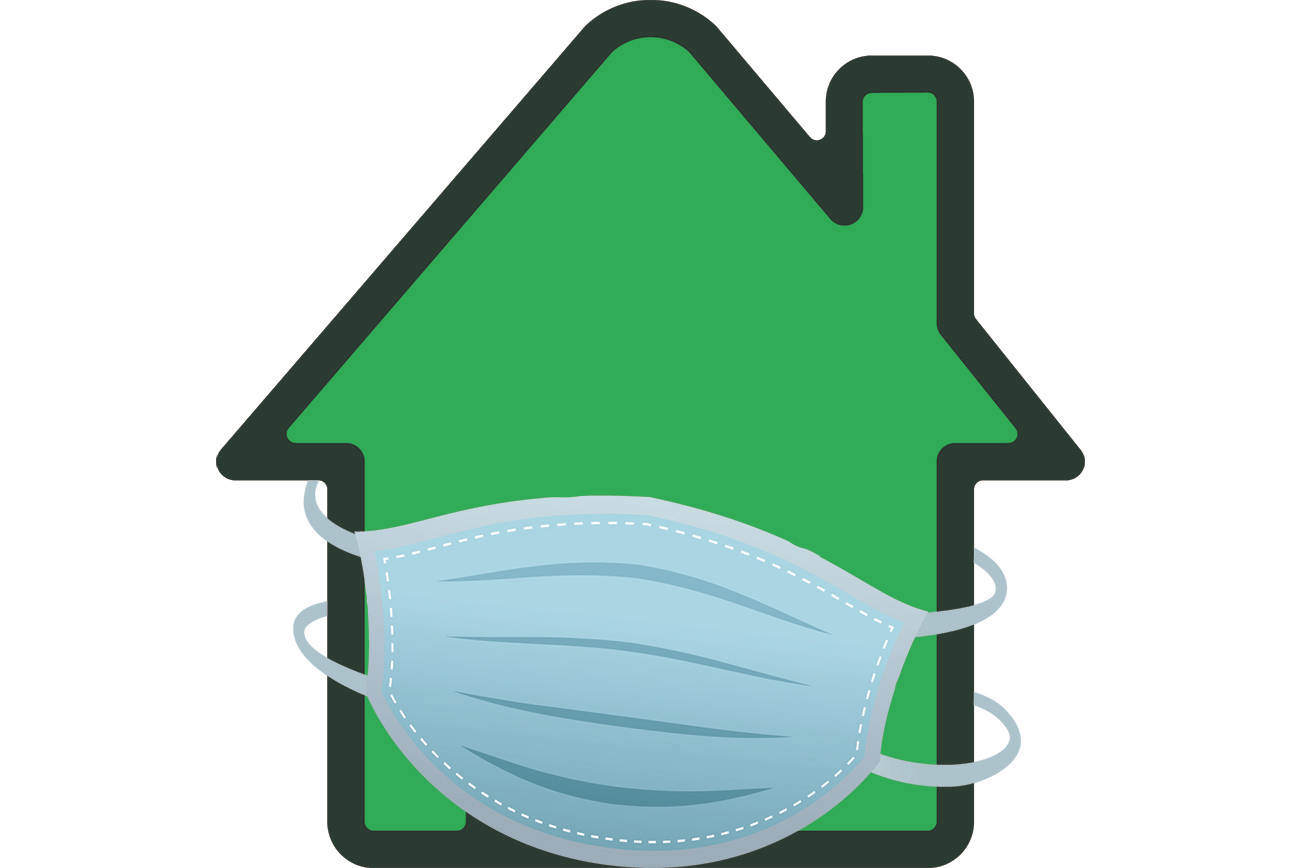The county has nearly tripled its emergency rental assistance contribution to resource centers as part of its COVID-19 response.
“With my job ending and unemployment taking much longer than expected, I was really stressed out about paying my rent,” said a Lopez Family Resource Center client. “I’m so grateful to the quick response and how easy [the resource center] made rent assistance happen.”
According to Mark Tompkins, director of San Juan County Health and Community Services, each resource center received $40,000 in April to help islanders pay rent. The funding is intended to be distributed by April 2021. A total of $60,000 of the funds came from county document recording fees while the remainder was provided by the real estate excise tax for affordable housing, which was approved by voters in 2018.
“We increased the amount this year due to COVID and increased needs,” Tompkins said. “And it was distributed equally between the three resource centers. We routinely work with the various resource centers on Orcas, Lopez and San Juan to distribute emergency rental assistance funding. The resource centers administer the program. Each one does it slightly differently but there are parameters they have to follow.”
The county’s contribution to rental assistance has steadily increased each year. In 2017, a total of $15,000 was given. In 2018 that number was $35,000 and in 2019, it was $37,500, divided between the organizations. The county’s Housing Advisory Committee reviews the resource centers’ application and approves funding.
According to Jennifer Armstrong, director of the San Juan Island Family Resource Center, recipients of the county’s rental assistance must be permanent residents of San Juan Island; have a monthly household income that falls at or below 60 percent of the area mean income; are experiencing temporary difficulty paying their full rent and have received an official late notice or pay-or-vacate notice; and are in otherwise good standing with their landlord.
“The extra assistance this year is specifically for COVID relief,” she said. “In addition to the [regular] criteria, applicants need to show that they are dealing with a financial struggle that is specifically due to COVID-related income loss.”
In addition, the nonprofit receives funding from the San Juan Island Community Foundation, the Town of Friday Harbor and state-funded programs, including one specifically for veterans.
“So, it really is best for people to contact us if they need assistance. We can gather some basic information about their situation over the phone, and determine which type of assistance best meets their needs,” Armstrong said. “We can also connect many people with utility assistance and other temporary supports at the same time.”
On Orcas, those applying for rental assistance must meet the same requirements as those on San Juan. County funding was pooled with private donations to assist many more households in need. From mid-March to the end of June, 86 households utilized rental assistance, with an average assistance per payment of $950.
This pool of rental assistance funding has so far included $40,000 from the county, $15,000 from the State of Washington, and $150,000 from the Orcas Island Community Foundation’s Emergency Response Fund, which, Orcas Community Resource Center’s Erin O’Dell reports was “very quick and responsive to the needs here on Orcas. Donors to that fund provided a tremendous amount of support for rental assistance among many other critical services.”
OPAL Community Land Trust partnered with OICF and the Orcas Community Resource Center to administer emergency rental and mortgage assistance specifically related to COVID-19 hardship. So far OPAL has responded to 243 requests for $230,000 in rental or mortgage assistance. OPAL Executive Director Lisa Byers reports that demand has decreased recently as people have been able to work, but she anticipates that when the Federal unemployment payments end at the end of July, the demand for funding will increase. Donations to the Emergency Response Fund can be made through the community foundation at www.oicf.us.
If you need assistance with your rent or mortgage due to financial hardship caused by the COVID-10 crisis, go to www.opalclt.org. Click the “Apply Now” button at the top of the home page to be taken to the Emergency Housing Assistance Application. The application is available in both English and Spanish.
Once an application is received, the OPAL staff works with each person to find the right solution. Banks or landlords are contacted to see if they can delay receipt of payment. If not, payments are made directly to the landlord or bank. Numerous county, state and federal actions have been announced to help people pay their bills, and OPAL is also assisting applicants in navigating those programs.
At the Lopez Island Family Resource Center, Executive Director Barbara Schultheiss said donors have provided an additional $56,200 this year for rental and mortgage assistance.
“As of today, we have provided $33,244.18 in rent/mortgage assistance to 24 households, with 70 children and adults, for 38 months of rent/mortgage assistance for April-June. All of these households have had their income impacted by COVID, with their household income less than 30 percent of the area mean income,” Schultheiss said. “We have an additional $3,600 in applications pending at this time and expect more for July, August and beyond.”
Schultheiss said the application is simple and collects household demographics, income information, the impact of COVID and other circumstances about why they need support.
“When households meet the income guidelines, financial assistance/checks are written and mailed promptly to landlords or mortgage lenders as we know how urgent the requests are and how stressful it is for community members waiting for this assistance,” she said.
How to reach the resource centers
San Juan Island Resource Center: 360-378-5246, http://sjifrc.org/.
Orcas Community Resource Center: 360-376-3184, https://orcascrc.org/.
Lopez Island Resource Center: 360-468-4117, https://lifrc.org/.



